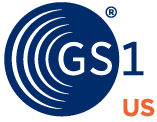Results of the online survey of 1,005 U.S. adults indicate consumers understand that these recalls help minimize risk, with 85% of U.S. adults believing that food recalls are effective in protecting public health and safety.
While the frequency of recalls may be concerning to consumers, it's also a signal of a more proactive and effective food safety system driven by scientific/technological innovations and regulatory modernization.
Regulations like the U.S. Food and Drug Administration (U.S. FDA) Food Safety Modernization Act (FSMA) aim to help the food supply chain respond faster to potential risks. Farms, distributors, brands, and retailers have an opportunity to quickly address consumer behavior that could be negatively impacting their business by enabling more precise traceability of food through the supply chain.










